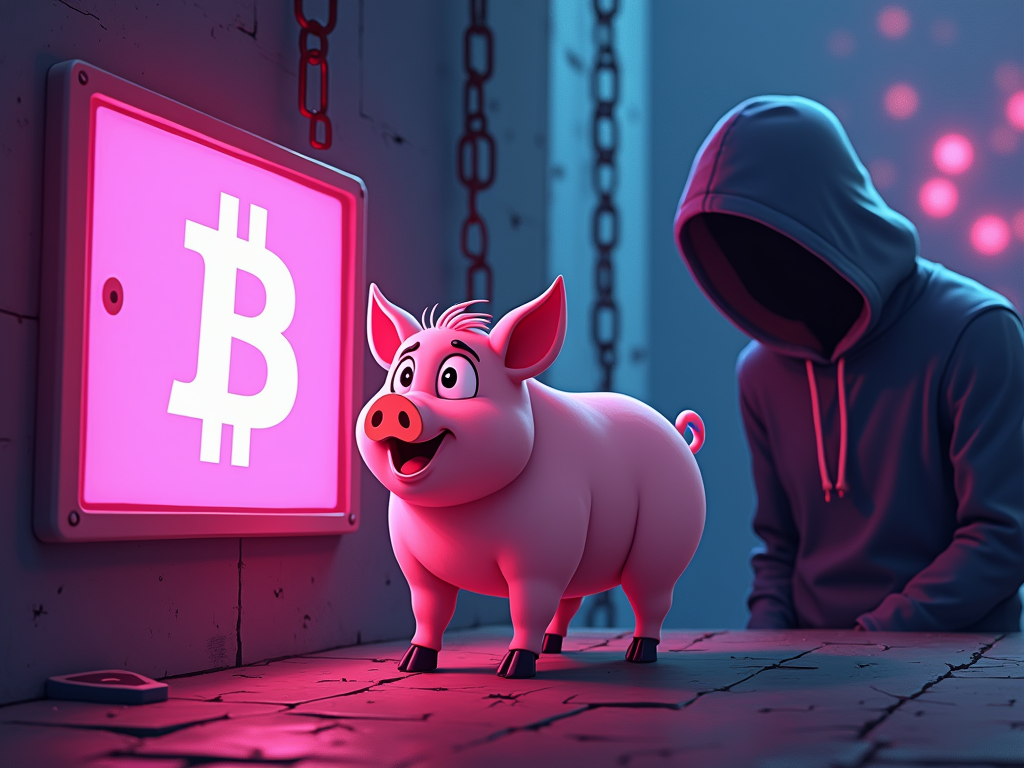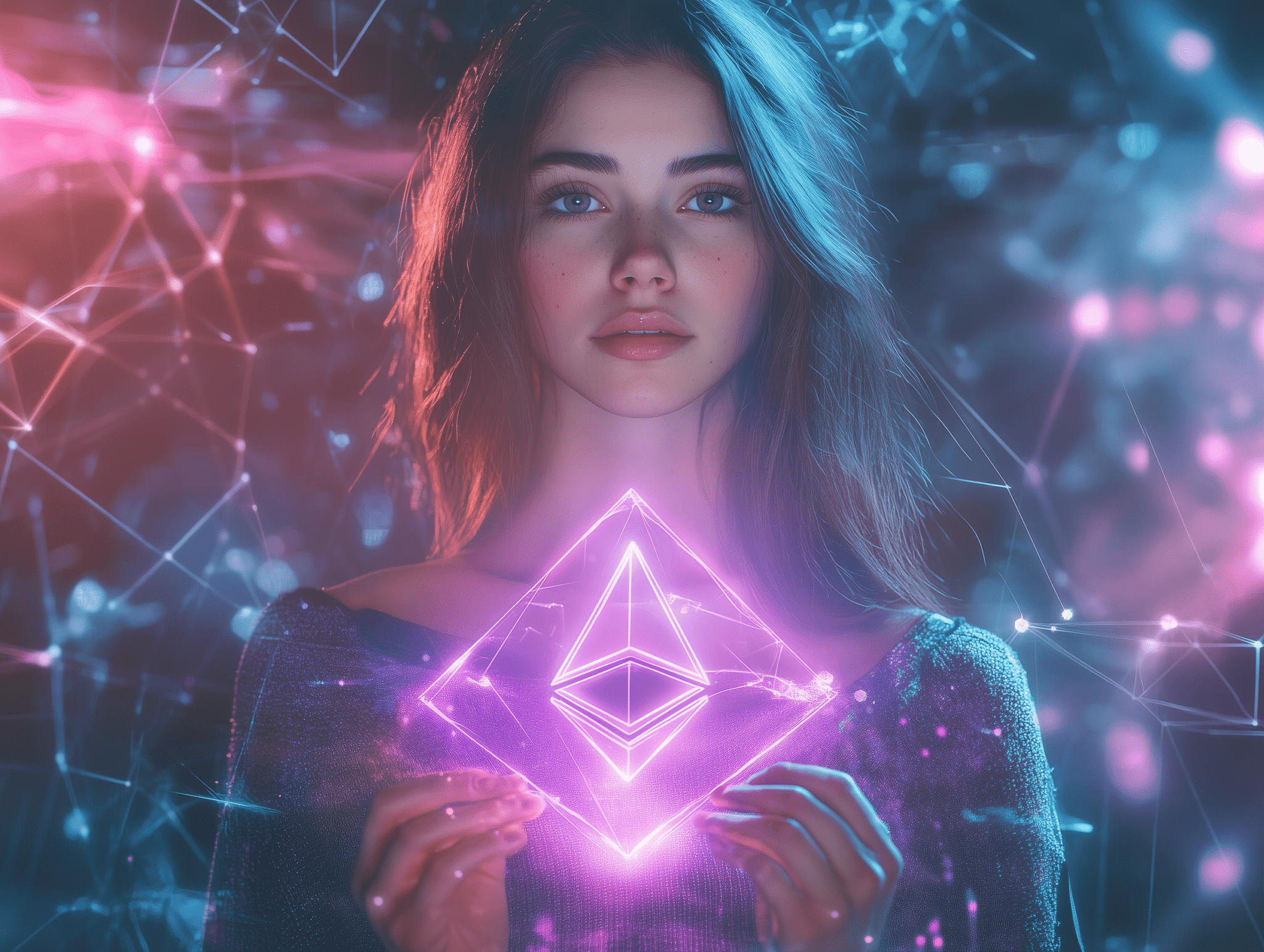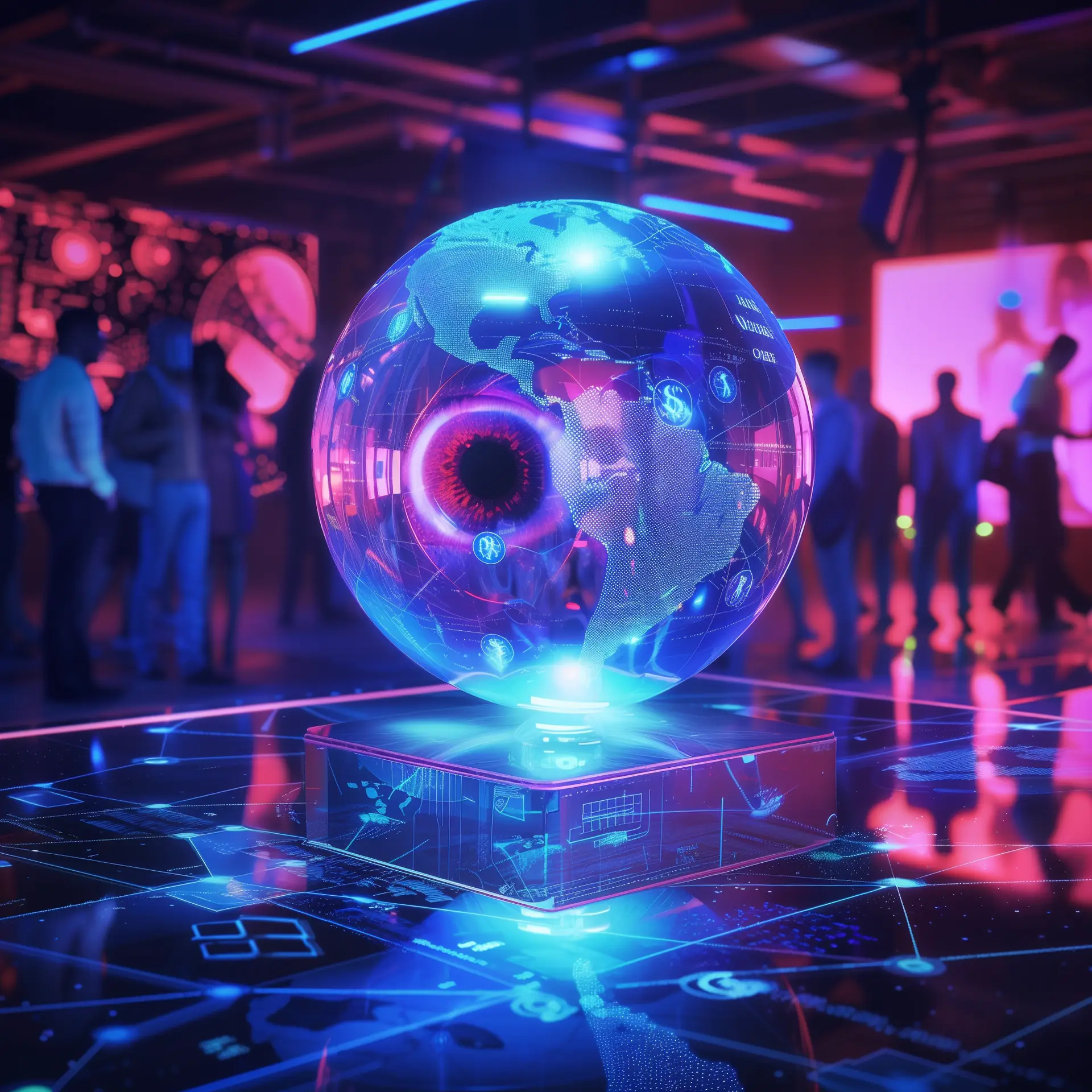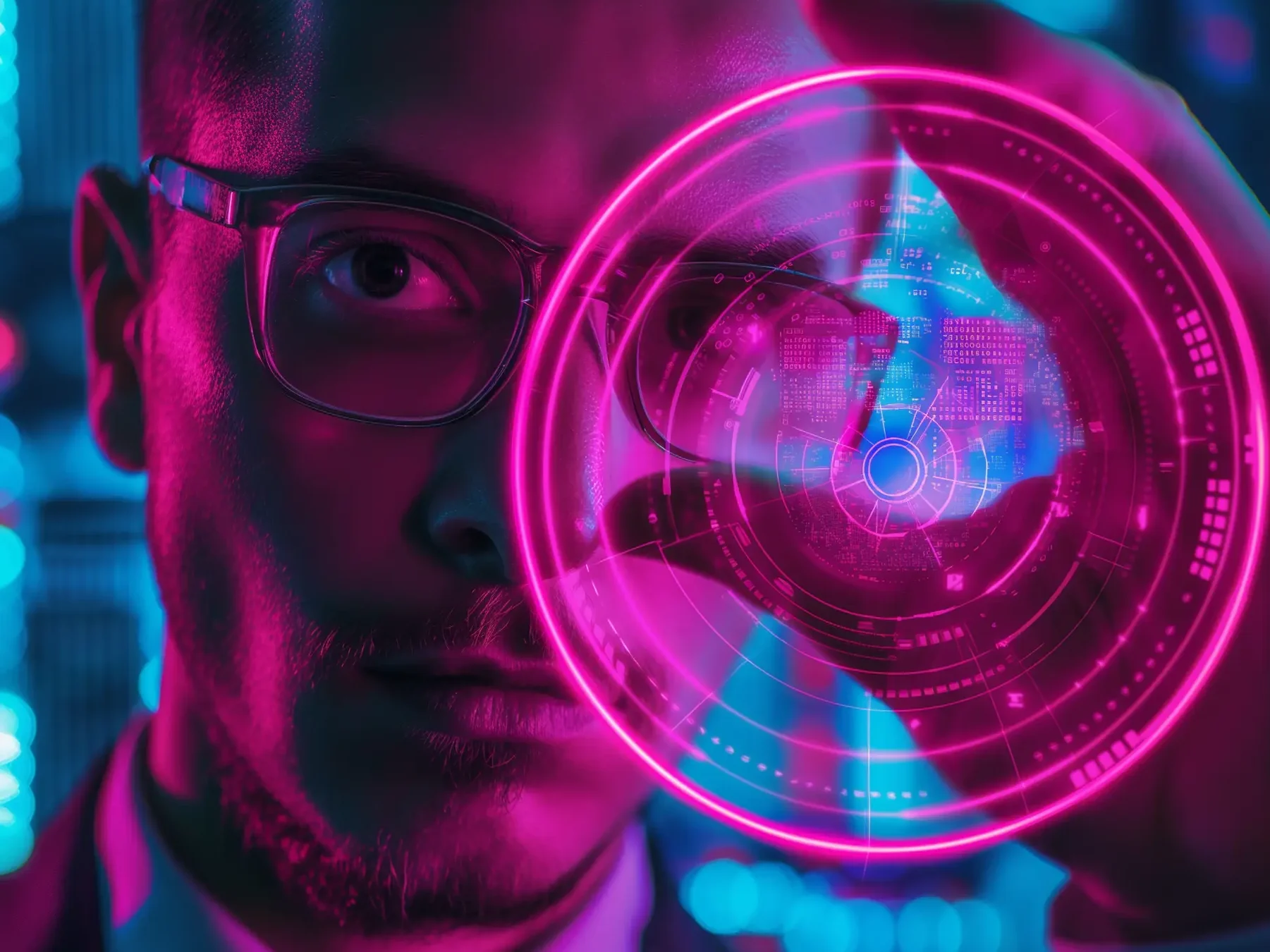In the ever-evolving landscape of technology, one innovation stands out for its potential to redefine how we organize and govern ourselves: the Decentralized Autonomous Organization, or DAO. Imagine a world where decisions are made collectively, transparently, and without the need for a central authority. This is the promise of DAOs, which leverage blockchain technology to create new, democratic governance structures.
The Dawn of DAOs
DAOs run on blockchain technology, where rules and decisions are encoded in smart contracts. These contracts execute automatically, removing the need for intermediaries. The concept is revolutionary, envisioning a world where decisions are decentralized, transparent, and autonomous.
One of the key appeals of DAOs is their transparency. Every transaction and decision is recorded on a blockchain, visible to all participants. This openness fosters trust, as members can independently verify each action, reducing the risk of corruption and manipulation.
The Mechanics of DAO Governance
At the heart of DAO governance is token-based voting. Participants hold tokens that represent their stake in the organization. These tokens are used to vote on proposals, with the weight of each vote often proportional to the number of tokens held. This system aligns decision-making power with investment, encouraging participants to act in the best interest of the DAO.
For those concerned about the concentration of power, quadratic voting offers a solution. This advanced mechanism quadratically increases the cost of each additional vote, preventing large token holders from having disproportionate influence. It encourages more equitable participation, ensuring that all voices are heard.
Another innovative mechanism is delegated voting, where token holders can delegate their voting power to trusted representatives. This can streamline decision-making and enhance the quality of governance by entrusting knowledgeable individuals with voting responsibilities.
Why DAOs Matter
DAOs’ inclusivity is a significant advantage. Traditional organizations often have barriers to entry, but DAOs democratize participation. Anyone with internet access can join, providing a platform for diverse perspectives. This inclusivity leads to more balanced and innovative outcomes.
Another benefit is efficiency. DAOs automate processes through smart contracts, which execute decisions swiftly and accurately. This reduces the need for lengthy bureaucratic procedures, accelerating the implementation of initiatives.
Moreover, DAOs are designed to minimize corruption and manipulation. Unethical behavior becomes difficult to conceal with every action recorded on an immutable blockchain. This transparency and immutability foster a culture of accountability.
The Roadblocks Ahead
However, the path to widespread DAO adoption is with obstacles. Legal and regulatory uncertainty looms large. Governments must still grapple with classifying and regulating DAOs, creating a cloud of ambiguity that can hinder their growth.
Security is another critical concern. DAOs are vulnerable to smart contract bugs and exploits, as evidenced by the infamous DAO hack in 2016, which stole $50 million worth of Ether. Rigorous security audits and robust contract design are essential to mitigate such risks.
Achieving consensus in a decentralized organization can also be challenging. With many participants holding diverse views, reaching an agreement can take time, leading to potential governance gridlock.
Case Studies in DAO Governance
Despite these challenges, several DAOs have made significant strides. MakerDAO, for instance, operates the DAI stablecoin, which is pegged to the US dollar and collateralized by other cryptocurrencies. MKR token holders make governance decisions, such as adjustments to stability fees and collateral types, through a voting process.
Aragon provides a platform for users to create and manage their DAOs. With governance, fundraising, and project management tools, Aragon empowers communities to self-organize and collaborate without central intermediaries.
Uniswap, a decentralized exchange protocol, also adopts a DAO governance model. UNI token holders propose and vote on changes to the protocol, ensuring that the platform evolves according to the community’s needs.
The Future of DAOs: Beyond Governance
As we look to the future, the potential of Decentralized Autonomous Organizations (DAOs) extends far beyond the current applications in cryptocurrency and blockchain governance. The fundamental principles of decentralization, transparency, and autonomy that underpin DAOs can be leveraged to transform numerous sectors, fostering a new era of innovation and inclusivity. Here, we delve deeper into the promising future of DAOs and their potential impact across various domains.
Integration with Traditional Systems
One of the most exciting prospects for DAOs is their integration with traditional governance systems. Hybrid models that blend DAOs’ decentralized, transparent nature with established legal and regulatory frameworks could emerge, offering the best of both worlds. Such integration would provide a bridge between innovative digital governance and the stability and recognition of traditional systems.
For instance, municipalities could implement DAO mechanisms for community decision-making, allowing residents to vote on local issues through a secure, transparent platform. This would enhance civic engagement and streamline administrative processes, making governance more efficient and responsive to public needs.
Enhanced Security and Functionality
As blockchain technology advances, the security and functionality of DAOs are expected to improve significantly. Current challenges, such as smart contract vulnerabilities, can be addressed through rigorous security audits, formal verification methods, and the development of more robust coding practices.
Future DAOs may incorporate advanced features such as artificial intelligence (AI) and machine learning to enhance decision-making processes. AI could analyze vast amounts of data to provide insights and recommendations, while machine learning algorithms could help predict the outcomes of different governance proposals, enabling more informed decision-making.
Broader Adoption Across Sectors
While DAOs are currently most prominent in the cryptocurrency and blockchain, their principles can be applied to various industries. Here are a few examples of how DAOs could revolutionize various sectors:
- Supply Chain Management: DAOs could ensure transparency and accountability in supply chains by recording every transaction and movement of goods on a blockchain. This would make verifying the origin and authenticity of products more accessible, combat fraud, and ensure compliance with regulations.
- Healthcare: In healthcare, DAOs could manage patient data in a secure, decentralized manner, giving patients more control over their information. They could also facilitate research collaborations and funding decisions, ensuring that resources are allocated transparently and efficiently.
- Environmental Conservation: DAOs could be used to manage environmental projects, such as reforestation or carbon offset programs. Participants could vote on how funds are allocated and monitor the progress of initiatives in real time, ensuring that environmental goals are met.
- Education: Educational institutions could use DAOs to manage curricula, funding, and student admissions. By decentralizing these processes, schools and universities could become more adaptive and responsive to students’ and society’s needs.
- Social Networks: Decentralized social networks governed by DAOs could give users more control over content moderation and platform policies, creating more democratic and user-centric online communities.
Financial Innovation
The financial sector stands to benefit immensely from DAO integration. Decentralized finance (DeFi) platforms already utilize DAOs to manage lending, borrowing, and trading services. DAOs can provide more sophisticated governance structures as these platforms grow to ensure security, fairness, and innovation.
For example, decentralized insurance platforms could use DAOs to handle claims and payouts, ensuring that decisions are made transparently and democratically. Investment DAOs could pool funds from members and make collective investment decisions, opening up new avenues for community-driven venture capital and asset management.
Cultural and Creative Industries
DAOs also hold promise for the cultural and creative industries. Artists, musicians, and content creators can use DAOs to manage rights, distribute royalties, and fund projects. This could democratize access to funding and support for creative endeavors, allowing more diverse voices to be heard.
One notable example is the concept of “crowdsourced patronage,” where fans can directly support their favorite artists through DAO-managed platforms. This could lead to a more equitable distribution of resources and greater creative freedom for artists.
Challenges and Considerations
Despite the immense potential, several challenges need to be addressed for DAOs to realize their full potential. Legal and regulatory uncertainty remains a significant barrier. As DAOs become more prevalent, governments will need to develop clear guidelines and frameworks to support their operation while protecting the interests of participants.
Security is another critical concern. Ensuring the robustness of smart contracts and protecting against exploits will be essential to maintaining trust in DAO systems. Additionally, achieving consensus in large, diverse communities can be challenging, and mechanisms to prevent governance gridlock will be necessary.
Lastly, there is a need for education and awareness. As DAOs represent a new paradigm in governance, stakeholders must understand their principles, benefits, and risks. Education initiatives can help demystify DAOs and encourage broader participation.
Conclusion
The future of DAOs is bright, with the potential to transform governance, finance, and numerous other sectors. By embracing the principles of decentralization, transparency, and autonomy, DAOs offer a new way to organize and manage resources, one that is more democratic, efficient, and inclusive.
As technology advances and regulatory clarity improves, DAOs could become a cornerstone of the digital economy, enabling more equitable and participatory governance structures. The journey is just beginning, and the evolution of DAOs promises to be a fascinating and transformative process, shaping the future of how we collaborate and govern ourselves.













